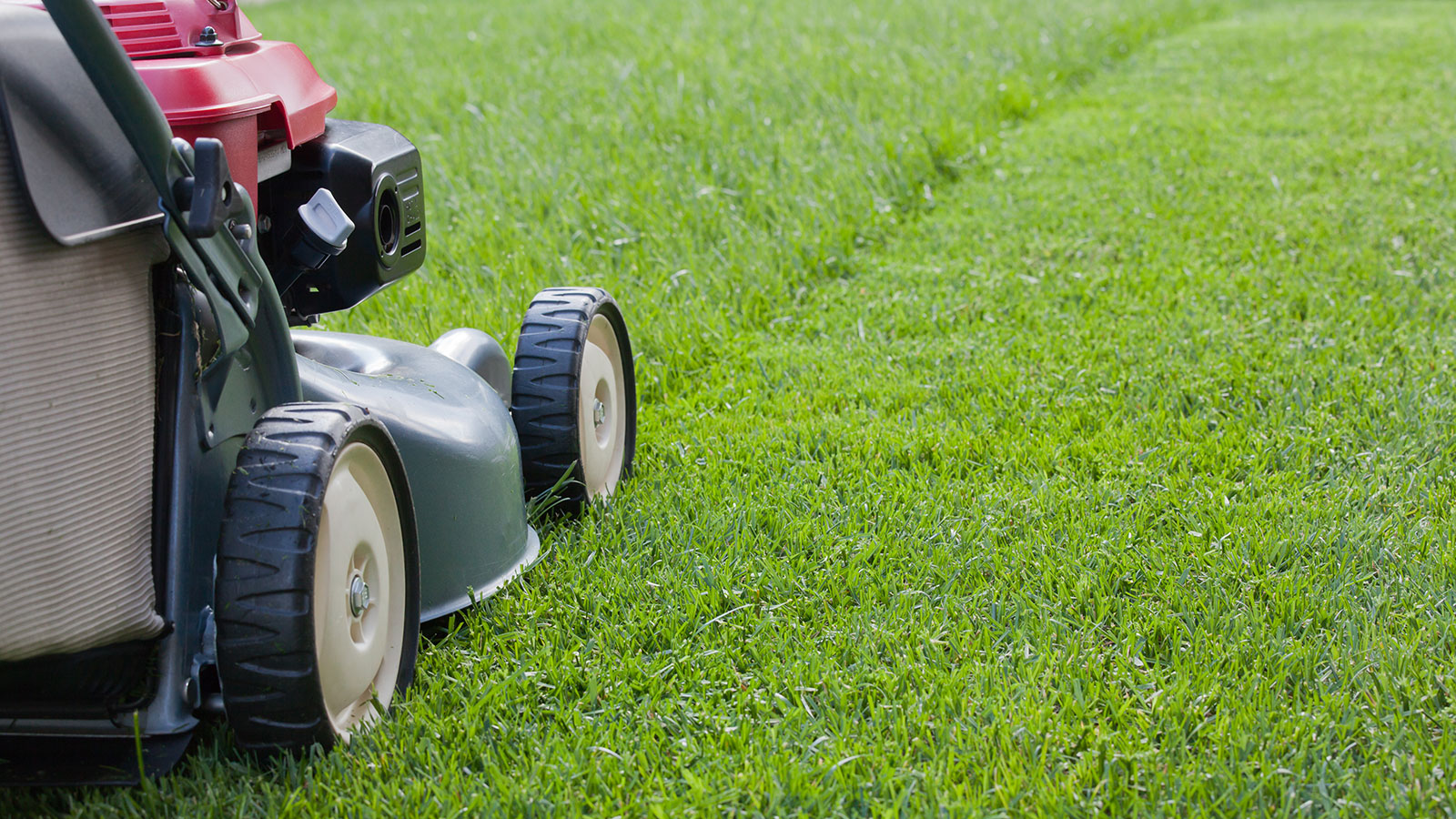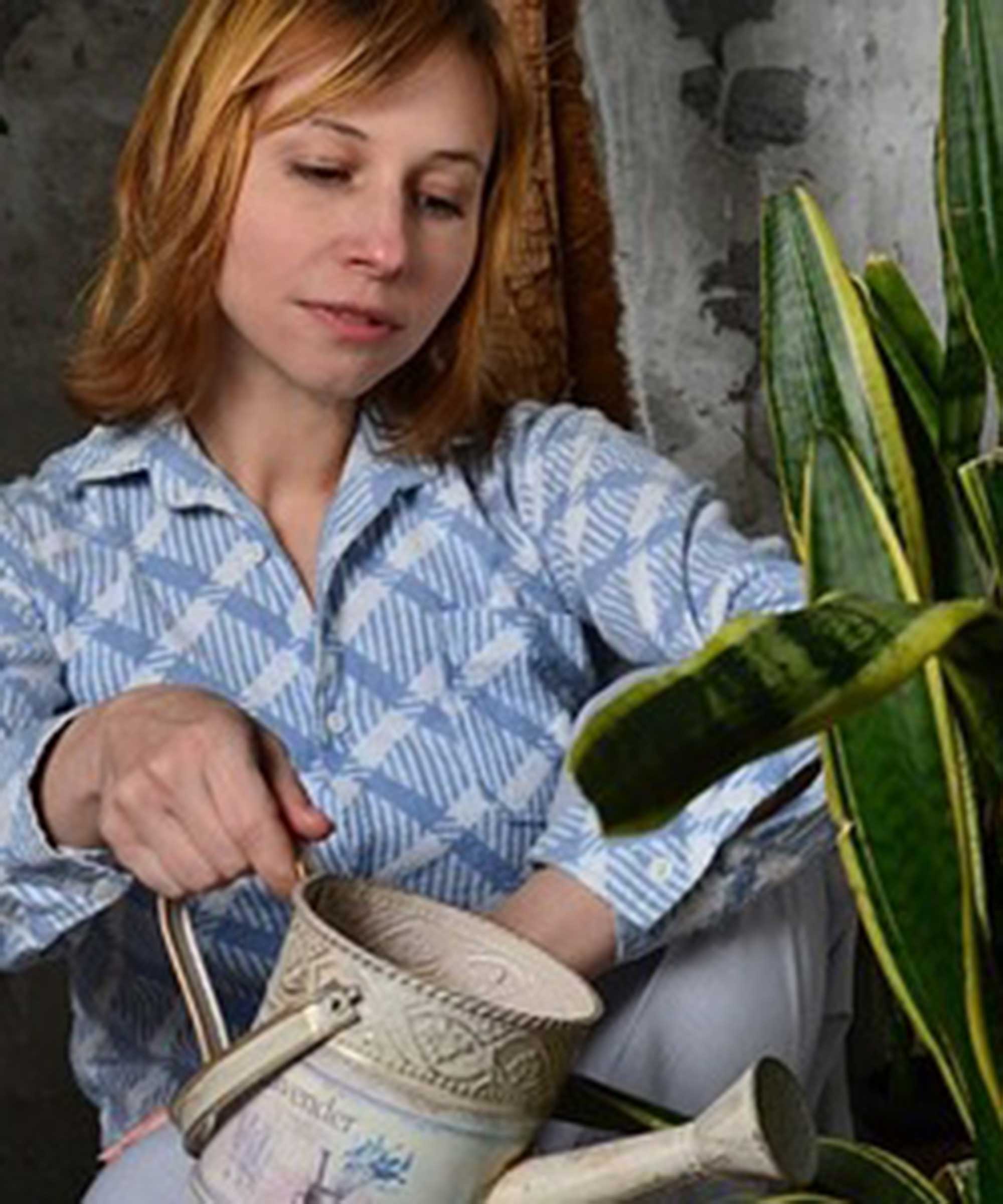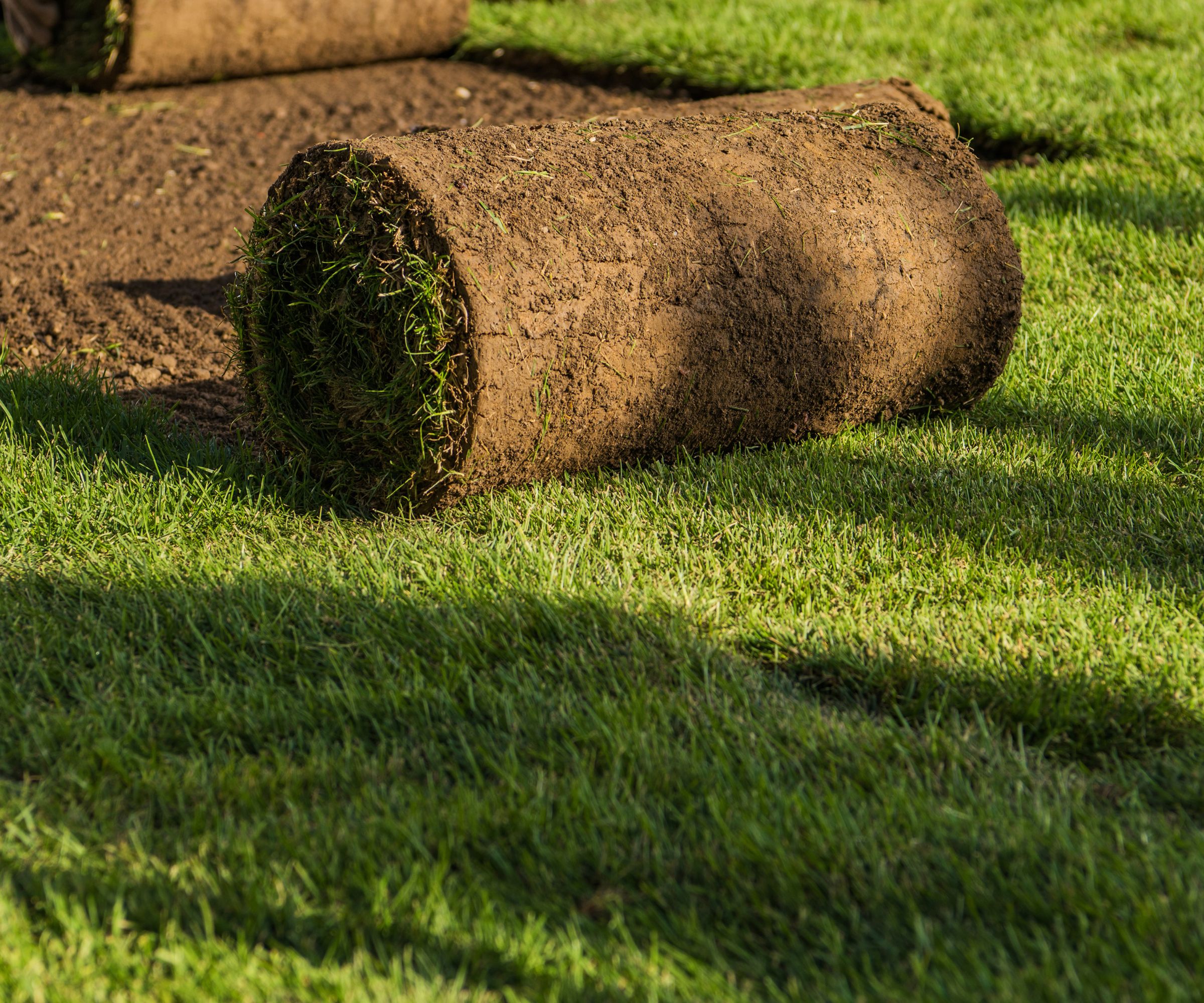When to cut new grass – experts explain the timings that boost growth
If you get the timing right, new grass will get a boost from being cut, so follow our experts' advice to enhance your lawn


If you have new grass, when should you cut it?
Do it too early, and you may worry that you'll damage the young roots; but get your lawn mower out and trim it too late and you may be lessening the chance of making your lawn greener and thicker.
Cutting new grass at just the right time, however, can encourage healthier, thicker growth. But how can you tell when and how often to mow your lawn if your grass is new? This is what experts advise.
When to cut new grass
Diana Cox, gardening expert at Gardening Talk says, 'The answer depends on a few factors, including the type of grass you have, the climate you live in, and how well your lawn is established.
'As a general rule of thumb, you should wait until your new grass is at least 2½ to 3in tall before mowing it for the first time. Mowing too early can risk damaging the roots, which are essential for the health of your lawn. It's crucial to give them time to grow strong before you start mowing.
'Once your new grass reaches the recommended height, you can start mowing it. However, it's essential to mow it lightly at first, cutting off only about a third of the grass blades' height. This approach prevents shock to the roots and encourages your lawn to grow thicker and healthier.
'As your lawn matures, you can gradually increase the mowing height. Nonetheless, remember never to cut your grass too short; keeping it at a height of 2 to 3inches is a good rule of thumb for optimal growth.'

Diana Cox is the proud founder of TheGardeningTalk.com and has over a decade of gardening experience. Through her blog, she aims to inspire and motivate fellow gardeners by sharing practical techniques that are grounded in both personal experience and thorough research.
The timing for cutting new grass also depends on the way you have laid your lawn.
When to cut newly-laid sod

Sod is mature grass on a layer of soil which is held together by severed grass roots or netting than can be rolled onto bare soil. The benefit of having sod is that it is an immediate way to get new grass, but that still doesn't mean it can be cut straight away.
Design expertise in your inbox – from inspiring decorating ideas and beautiful celebrity homes to practical gardening advice and shopping round-ups.
David Cohen from Badais International advises, 'For newly laid sod, it's essential to wait until the roots have firmly established before mowing. This can take anywhere from two to four weeks, depending on the grass type and growing conditions.'
Zach Poole at Advance Lawn Care adds, 'The best way to know it is ready is to gently try to lift up a few sod squares. If it lifts up with no resistance. Give it another week. If you feel some resistance the sod has begun to establish roots and should be safe to mow.'

Zach Pool is the agronomics expert at Advanced Lawn Care, a family-owned business providing lawn treatments in Hot Springs, AR.
When to cut new sprigs, stolons or plugs
Not all warm-season grasses can be grown from seed, and may instead need to be established with sprigs, stolons, or plugs. All are useful for repairing patches in grass.
'Grass grown in this way will need three to six weeks to establish itself before its first mow. Similar to sod you can gently pull on the plant to see if it has established roots. The key here is to ensure the roots will sufficiently hold the plant in during mowing. Otherwise the plant can be uprooted and damaged,' recommends Zach Poole.
When to cut newly sown grass
It doesn't take long from planting grass from seed to cutting it, especially if you have used fast growing grass seeds. But whether you've sown a new lawn or have had to resort to overseeding your lawn to repair damage (we have specific advice on when to mow a lawn after overseeding), allowing it to establish is still important.
Zach Poole advises, 'Seed germination usually takes two to four weeks, depending on what type of seed was spread. Remember with seed blends the different seeds will germinate at different times. It's important to allow enough time for all the seed varieties to germinate to prevent damage to the seeds.'
FAQs
What is the best time to mow lawn?
Experts agree that the best time of the day to mow lawn is between 8 and 10am, leaving your grass plenty of time to heal and dry before the evening.
It's also best to avoid cutting new grass in extreme weather conditions, such as drought or heavy rain, since this can further stress the grass.
Cutting new grass should be an easy and rewarding task, but it's vital to wait until it has established to make sure it is as healthy and rooted as can be.
Our final take home tip: make sure to keep your lawn mower blades sharp to avoid damaging new grass and leaving it vulnerable to diseases.
If you follow these new grass cutting rules, you lawn should stay looking flawless.

Lola Houlton is a news writer for Homes & Gardens. She has been writing content for Future PLC for the past six years, in particular Homes & Gardens, Real Homes and GardeningEtc. She writes on a broad range of subjects, including practical household advice, recipe articles, and product reviews, working closely with experts in their fields to cover everything from heating to home organization through to house plants. Lola is a graduate, who completed her degree in Psychology at the University of Sussex. She has also spent some time working at the BBC.